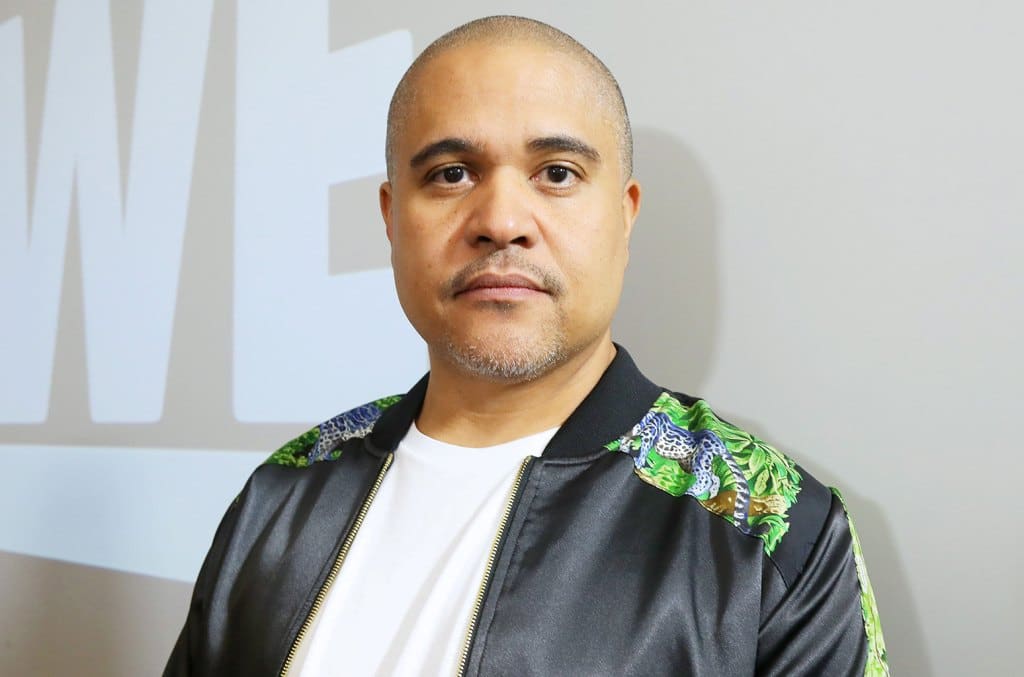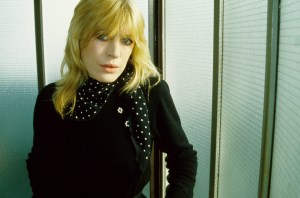obituary
Page: 7
Chris Jasper — the award-winning Isley Brothers songwriter, producer and keyboardist — has died. He was 73 years old.
The Rock & Roll Hall of Famer’s family broke the news with a notice on Facebook posted Monday (Feb. 24), one day after Jasper’s death. “He will be deeply missed and his legacy will live on as an inspiration for generations,” it reads.
The message also noted that Jasper had been battling cancer following a diagnosis in December.
Born Dec. 30, 1951, and educated at the Juilliard School of Music, the Cincinnati native helped transform the Isley Brothers from vocal trio to full-fledged band when he joined the original lineup — comprised of brothers O’Kelly Jr., Rudolph and Ronald Isley — in 1973 alongside Ernie and Marvin Isley. During his decade with the group, they scored numerous entries on the Billboard Hot 100, including top 10 hits “That Lady (Part 1)” and “Fight the Power Part 1,” both of which Jasper helped write.
Trending on Billboard
The Isley Brothers also charted a dozen albums on the Billboard 200 during Jasper’s tenure, including 1975’s No. 1 LP The Heat Is On. 1973’s 3+3, 1976’s Harvest for the World, 1977’s Go for Your Guns, 1978’s Showdown and 1980’s Go All the Way also all reached the top 10.
After the group disbanded in 1984, the pianist formed Isley-Jasper-Isley with Ernie and Marvin, and recorded hits such as 1985’s “Caravan of Love.” He would later go on to pursue a solo music career, becoming known for tracks such as “Superbad” and “The First Time.” He released his final album, It Started With a Kiss, in 2023.
Jasper’s contributions to R&B and popular music were recognized with numerous major accolades over the years, including with his induction into the Rock & Roll Hall of Fame along with the rest of his Isley Brothers bandmates in 1992. In 2014, the Grammys honored the group with a Lifetime Achievement Award, eight years after which the Songwriters Hall of Fame inducted the members into its 2022 class.
The icon is survived by his wife, New York attorney and author Margie Jasper, as well as his three sons Michael, Nicholas and Christopher.
Roberta Flack, the beloved, Grammy-winning 1970s R&B singer best known for such hits as “The First Time Ever I Saw Your Face” and “Killing Me Softly” died on Monday (Feb. 24) at 88. At press time a statement from Flack’s spokesperson revealed that she died peacefully, with no official cause of death available.
Explore
Explore
See latest videos, charts and news
See latest videos, charts and news
“We are heartbroken that the glorious Roberta Flack passed away this morning, February 24, 2025,” read the statement. “She died peacefully surrounded by her family. Roberta broke boundaries and records. She was also a proud educator.”
A classically trained pianist from an early age, Flack received a music scholarship at 15 to attend Howard University and was soon discovered singing at Washington, D.C. nightclub Mr. Henry’s by jazz great Les McCann, which led to her signing with Atlantic Records. She scored her first break in 1971 when Clint Eastwood used her version of the moon-y ballad “The First Time Ever I Saw Your Face” in his directorial debut, Play Misty For Me.
Trending on Billboard
A master of the “quiet storm” style, Flack’s effortless, soothing vocals soon became a staple of R&B and pop radio, leading to a two-decade run of chart hits.
Flack was born Roberta Cleopatra Flack in Black Mountain, N.C. on Feb. 10, 1937 and raised in Arlington, Va. where her mother, Irene, played organ at the Lomax African Methodist Episcopal Church. She learned to play piano on a funky junkyard instrument her father — a jazz pianist himself — found and restored for her, on which she practiced Handel’s Messiah and Bach’s Christmas Oratorio, as well as Mozart’s Requiem.
After getting her public debut playing piano as an adolescent in the Lomax church, Flack studied piano at Howard, then moved on to a music educator program after being told that the racial barriers at that time for a Black classical concert pianist were too high for her to achieve her dream. Following her father’s death in 1959, Flack returned to North Carolina and took a job teaching music at a public school, later moving back to D.C., where she taught at several middle and high schools for a decade.
Flack released her debut LP, First Take, in 1969 which included her first No. 1 on the Billboard Hot 100, “The First Time Ever I Saw Your Face,” which also helped the album reach No. 1 on the Billboard 200 chart; the song would win the Grammy for record of the year in 1972. She hit No. 1 again in 1973 with “Killing Me Softly,” from the album of the same name, with the song winning the 1974 Grammy for record of the year. It was later famously covered by the Fugees in 1996 on their second album, The Score.
Flack’s unprecedented back-to-back Grammy wins for record of the year feat wasn’t achieved again until U2 scored the same two-fer with “Beautiful Day” (2001) and “Walk On” (2002). Flack regularly recorded with fellow soul great Donny Hathaway, scoring duet hits on the Hot 100 with the singer on a covers of “You’ve Got a Friend” (1971, No. 29) and “You’ve Lost That Lovin’ Feelin’” (1971, No. 71), as well as “Where Is the Love” (1972, No. 5), “The Closer I Get To You” (1978, No. 2) and “You Are My Heaven” (1980, No. 47), among others.
She scored a total of 18 Hot 100 hits, and landed four albums in the top three on the Billboard 200 album charts, as well as more than two dozen charting hits on the Hot R&B/Hip-Hop Songs chart.
Flack’s chart prominence began to fade by the mid-1980s, but she kept recording, releasing her most recent album in 2012 with the Beatles cover album Let It Be Roberta. Over the course of her career, Flack was nominated for 14 Grammys and won three.
Check out some of Flack’s most beloved hits below.
Bill Fay, the British cult folk singer-songwriter, has passed away at the age of 81.
On Saturday (Feb. 23), Fay’s label Dead Oceans confirmed his death in a statement on Instagram, noting that the musician “peacefully” passed away that morning in London. A cause of death was not specified, but Fay had been diagnosed with Parkinson’s Disease.
“Bill was a gentle man and a gentleman, wise beyond our times,” Dead Oceans wrote in a statement. “He was a private person with the biggest of hearts, who wrote immensely moving, meaningful songs that will continue to find people for years to come.”
Born in North London in 1943, Fay studied electronics at a university in Wales, where he began honing his songwriting skills on piano and harmonium. His early recordings caught the attention of former Van Morrison drummer Terry Noon, who helped him sign to the Decca Records subsidiary Dream.
Fay released two albums with the label: his self-titled debut in 1970 and Time of the Last Persecution in 1971. The latter album was a commercial failure, and he was dropped by the label. Fay would not release any new music for decades afterward.
Trending on Billboard
“I didn’t leave the music business — the music business left me,” Fay told The Guardian in February 2024. “It wasn’t difficult, because I still had the music … and you find the songs. And then you find another. That’s good enough for me.”
After leaving the music industry, Fay worked as a groundskeeper, fruit picker and factory worker, among other jobs, all while continuing to make music. In 1998, a small British label reissued his first two albums, leading to renewed interest in his work. Producer Jim O’Rourke soon discovered Fay’s music and played it for Jeff Tweedy during the recording sessions for Wilco’s 2002 album, Yankee Hotel Foxtrot. Tweedy was so taken with Fay’s music that he incorporated a cover of “Be Not So Fearful” into Wilco’s live shows, even convincing Fay to join the band on stage in 2007 and 2010.
“There’s a simplicity and an elegance to it,” Tweedy told The Guardian last year. “You immediately recognize this is something uncut by ambition and fashion; it’s just somebody humbly adding their voice to contribute some beauty in, and maybe make peace with, the world.”
O’Rourke also introduced Fay’s music to Current 93’s David Tibet, who helped release the 2005 compilation Tomorrow, Tomorrow & Tomorrow, which featured recordings from 1978 to 1981.
In the years that followed, producer Joshua Henry discovered a copy of Time of the Last Persecution in his father’s record collection and eventually reached out to Fay. This connection led to Fay signing with Dead Oceans, where he released three new albums: Life Is People (2012), Who Is the Sender? (2015), and Countless Branches (2020).
Dead Oceans stated that Fay had been working on new music just a month before his death.
“Only a month before his passing, Bill was busy working on a new album,” the label wrote. “Our hope is to find a way to finish and release it, but for now, we remember Bill’s legacy as the “man in the corner of the room at the piano”, who quietly wrote heartfelt songs that touched and connected with people around the world.”
See Dead Ocean’s announcement of Fay’s passing on Instagram here.
Jerry Butler, the beloved Chicago soul singer, producer and, later, politician who began his career in the late 1950 singing alongside childhood friend Curtis Mayfield in the Impressions, has died at 85. According to the Chicago Sun-Times, Butler died on Thursday night (Feb. 20) of undisclosed causes after a long battle with Parkinson’s disease.
Explore
See latest videos, charts and news
See latest videos, charts and news
Motown legend Smokey Robinson told the Sun-Times that Butler was “one of the great voices of our time,” lauding the singer who the Miracles vocalist had admired since he was a young man listening to the Impressions’ 1958 Billboard Hot 100 No. 11 hit “For Your Precious Love.”
Trending on Billboard
Working alongside singer/guitarist Mayfield — whom he’d met as a teenager singing in a church choir — Butler began his career in the Northern Jubilee Gospel Singers group before joining the Roosters, who in short order became known as The Impressions. The group struck gold off the bat with the Butler co-written “For Your Precious Love,” a slow-burning, yearning song inspired by a poem Butler wrote in high school — credited to Jerry Butler & the Impressions — that melded the friends’ church-based gospel roots with a stirring soul sound.
The single, released by Vee-Jay Records and ranked in 2003 as the No. 335 on Rolling Stone magazine’s 500 Greatest Songs of All Time list, would be one of only two Butler recorded with the group, followed up by that same year’s No. 29 Billboard R&B chart hit “Come Back My Love.” Tensions in the group over Butler’s first-billing status led to the singer going out on his own, though his first solo hit was a reunion with Mayfield on the 1960 Vee-Jay co-write “He Will Break Your Heart.” That song peaked at No. 7 on the Billboard Hot 100 singles chart.
While Mayfield soon became a star in his own right thanks to his funky soul soundtrack to the 1972 blaxploitation film Superfly and such civil rights anthems as “People Get Ready,” Butler embarked on run of hits in the 1960s and 70s that included 38 career Hot 100 entries — including three top 10s — as well as 53 songs on the Hot R&B/Hip-Hop Songs charts.
In 1961, Butler’s impressive vocal range and always fresh attire earned him the career-long nickname “The Iceman” from WDAS Philadelphia DJ George Woods, bestowed on the singer after he kept his cool and continued to sing after the PA system burned out on him at a Philly show.
He scored another top 10 hit in 1964 with the hopelessly-in-love ballad “Let It Be Me,” a collaboration with singer Betty Everett on the Everly Brothers-written song that appeared on their joint Delicious Together album and peaked at No. 5 on the Hot 100. Butler’s third top 10 song came in 1969 with the inspirational soul stirrer “Only the Strong Survive,” one of the singer’s collaborations with the hit songwriting team of Kenny Gamble and Leon Huff. The song appeared on his The Ice Man Cometh album and served as his highest-ever charting single after reaching No. 4 on the Hot 100, as well as spending two weeks at the top of the Hot R&B/Hip-Hop Songs chart (then called the Billboard Black Singles Chart).
One of his most enduring hits, the song would later be covered by, among others, Elvis, Rod Stewart and Bruce Springsteen, who also made it the title of his 2022 R&B/soul covers solo album.
Gamble and Huff released a joint statement honoring their friend on Friday, saying, “We deeply and sincerely mourn the loss of our dear and longtime friend the great Jerry Butler, aka ‘The Iceman,’ for his cool, smooth vocals and demeanor,” they wrote. “Our friendship with Jerry goes back for more than 60 years both as an iconic artist and music collaborator with hit songs such as ‘Only the Strong Survive,’ ‘Western Union Man,’ ‘Never Gonna Give You Up’ and many more. We will really miss Jerry. He was a one of a kind music legend!”
Butler, whose vocals often climbed from a deep baritone to a crystal falsetto, would land Hot 100 hits in the 1950s, 60s and 70s, last charting on the singles tally in 1977 with “I Wanna Do It To You,” which peaked at No. 51.
His 53 career entries on the Hot R&B/Hip-Hop songs chart included 18 top 10s and four No. 1s, including “He Will Break Your Heart,” “Let It Be Me,” 1968’s “Hey, Western Union Man” and “Only the Strong Survive.” He last appeared on that chart in 1982 with the No. 83 hit “No Love Without Changes.” The singer also co-write a 1965 hit for then climbing soul singer Otis Redding, “I’ve Been Loving You Too Long,” one of Redding’s most beloved songs, which has been covered over the years by everyone from the Rolling Stones to Aretha Franklin, Ike & Tina Turner and country singer Barbara Mandrell.
In addition, Butler had 15 career entires on the Billboard 200 album chart, with The Ice Man Cometh representing his peak at No. 29, followed by 1969’s Ice On Ice (No. 41) and 1977’s Thelma & Jerry with Thelma Houston topping out at No. 53.
Butler was born in Sunflower, MS on Dec. 8, 1939 and moved to Chicago at age three, where he grew up in the since-demolished Cabrini-Green housing projects. With is biggest music years behind him by the early 1980s, Butler — who had earlier set up his own short-lived record label, Memphis Records and production company — pivoted to running a Chicago beer distributorship. He entered politics a few years later after being inspired by the city’s first Black Mayor, Harold Washington. Former Black Panther and longtime Chicago alderman Bobby Rush encouraged Butler to run for the Cook County Board of Commissioners in 1985, where the singer served three four-year terms before his retirement from public office in 2018.
The singer kept performing live into the early 2000s and hosted oldies R&B specials (Doo Wop 50, Rock Rhythm and Doo Wop) for PBS, as well as serving as the chairman of the board for the Rhythm and Blues Foundation. He was inducted into the Rock and Roll Hall of Fame in 1991 as a member of the Impressions.
Over the years, his songs were sampled by a number of hip-hop acts, including Method Man on his 1994 Tical single “Bring the Pain” (which used bits of 1974’s “I’m Your Mechanical Man”), as well as Missy Elliott’s song of the same name from 2002. Snoop Dogg tapped Butler’s 1972 song “I Need You” for his 2006 Blue Carpet Treatment song “Think About It.”
Butler published his autobiography, Only the Strong Survive: Memoirs of a Soul Survivor, in 2000.
Check out some of Butler’s classics below.
Rick Buckler, a longtime rocker best known as the drummer for legendary band The Jam, has died. He was 69 years old. The news of his death was announced on X via a heartfelt message from his bandmate, Paul Weller. “I’m shocked and saddened by Rick’s passing. I’m thinking back to us all rehearsing in […]
Mexican singer and songwriter Paquita la del Barrio, known for denouncing macho culture and attitudes in rancheras and boleros like “Tres Veces Te Engañé,” “Rata De Dos Patas” and “Las Rodilleras,” has died, it was announced on her Instagram account. She was 77.
“With deep pain and sadness, we confirm the sensitive passing of our beloved ‘Paquita la del Barrio’ at her home in Veracruz, [Mexico] being a unique and irreplaceable artist, who will leave an indelible mark in the hearts of all who knew her and enjoyed her music,” says a statement posted on Monday (Feb. 17). “In this moment of great pain, we respectfully ask all media and the public to give us space and understanding so that her family can experience their mourning in privacy and peace.”
A representative of the artist in Mexico informed Billboard Español that she died of a heart attack while she was sleeping.
Trending on Billboard
With a career spanning over five decades, Paquita la del Barrio was an idol in popular music. In 2011, she received the Billboard Regional Mexican Music Award “La Voz,” and 10 years later, in 2021, she was recognized with the Lifetime Achievement Award at the Billboard Latin Music Awards for her exceptional career.
Born in Veracruz, Mexico, Francisca Viveros Barradas (her real name) discovered her powerful voice as a child while singing at school festivals. In the 1970s, she formed the duo Las Golondrinas with her sister Viola, and in 1984, she released her debut album, El Barrio de los Faroles, as Paquita la del Barrio.
Since then, she recorded over 30 albums, which sold more than 30 million copies, with hits that also include “Las Mujeres Mandan,” “La Última Parada,” “Me Saludas a la Tuya,” “Soltero Maduro, Chiquito” and “Hombres Malvados,” among others.
On the Billboard charts, she had eight entried on Top Latin Albums, two songs on Regional Mexican Airplay (“Piérdeme el Respeto” and “Si Yo Fuera Varón”) and one (“Pobre Pistolita”) on Tropical Airplay.
She was married twice, to Miguel Gerardo and Alfonso Martínez, and had three children.
Gene ‘Groove’ Allen, a rapper and actor who was known for his role in rap trio Groove B. Chill, died on Wednesday (Feb. 12). He was 62 years old, according to TMZ, who first reported the news. Explore Explore See latest videos, charts and news See latest videos, charts and news The Long Island, New […]
Horst Weidenmueller, the founder of label and music company !K7, has died at age 60.
A statement from !K7 provided to Billboard says his death followed “a serious illness” but did not elaborate on the specifics.
Born in the Black Forest region of Germany, Weidenmueller moved to Berlin and founded !K7 in 1985, when he was 21 years old. !K7 began as a music-video production company, later launching the DJ-Kicks mix series that would go on to become an influential and globally known platform for a wide range of DJs and producers.
!K7 began releasing artist albums in 1996, putting forth music from across the wide electronic spectrum. The company now has offices in Berlin, London and New York, with its label group including the in-house labels !K7, AUS, 7K!, Soul Bank and Strut Records.
In 2024, Weidenmueller was recognized with the prestigious IMPALA Outstanding Contribution Award for his influential work in the European independent music sector, an award that coincided with the 40th anniversary of !K7 Music.
The award acknowledged Weidenmüller’s advocacy for sustainability and inclusion in the music industry. As a long-time IMPALA board member and the founder of its Sustainability Task Force, he spearheaded the development of a bespoke carbon calculator for labels, in partnership with Julie’s Bicycle, Merlin and Murmur. He also helped establish IMPALA’s Business Case for Sustainability, emphasizing the financial benefits of environmentally conscious practices.
Trending on Billboard
The statement from !K7 continues that “beyond his role at !K7, Horst was a passionate advocate for the independent music community. As a long-standing board member of Merlin and IMPALA Independent Music Companies Association, he played a vital role in strengthening and championing the independent sector on a global scale. His contributions have left a lasting impact on the industry and will not be forgotten.“Our thoughts are with his family, friends, and everyone whose lives he touched. We will honour his memory by carrying forward the work and values he instilled in us. !K7 remains committed to continuing his vision with the same passion and integrity that he embodied.”
The company’s statement adds, “We kindly ask to respect his family’s privacy at this time.”
Irv Gotti — who co-founded the hitmaking Murder Inc. Records label and helped make early 2000s superstars out of Ja Rule and Ashanti — has died after suffering a stroke, The Hollywood Reporter confirmed. He was 54 years old. Alongside brother Chris, Irv Gotti (born Domingo Lorenzo Jr.) launched Murder Inc. in 1998 as an […]
2025 got off to a rough start in the music world, with two music greats passing away on the first day of the new year. Argentine artist and composer Leo Dan — known for his romantic tracks such as“Cómo Te Extraño Mi Amor,” “Mary Es Mi Amor” and “Pídeme La Luna” — died at age […]

 State Champ Radio
State Champ Radio 





